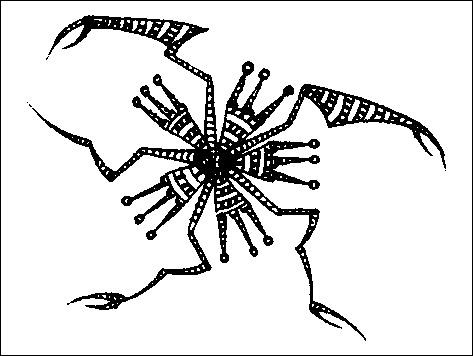The Review of Arts, Literature, Philosophy and the Humanities Early Fall 2005
|
The Art and Science
Of Listening to Birdsong
Donald Kroodsma
(Houghton Mifflin)

The third was that when she sat down at the old Baldwin up-right, she pounded the hell out of it. She sang, belting out the tunes, and she whistled! Who'd ever think this shy courtly old lady could make such looney tunes.
- Last night I dreamed of my Halley
Of my Halley, my sweet Halley
Last night I dreamed of my Halley
For the thought of her is one that never dies
she sang. And well do I recall wondering, "Halley. Is there someone here named 'Halley?'" Someone I've never met, named after a comet?
-
She's sleeping now in the valley
In the valley, my sweet Halley
She's sleeping now in the valley
And the Mockingbird is singing where she lies...
"Sleeping in the valley," I thought. "We don't have valleys here, on the southern coast. In the Carolinas, yes ... but not here."
- Listen to the Mockingbird, listen to the Mockingbird
Oh the Mockingbird is singing oe'er her grave
Listen to the Mockingbird, listen to the Mockingbird
Still singing where the yellow roses grow
"Listen to the mockingbird," she would sing, so cheerfully. "Listen to the mockingbird," she would sing. And then she would whistle, not those weak breathings that the most of us come up with, but a window-rattling fire-chief trill.
I have tried again and again to write down to my satisfaction what our local mockingbird is saying to us. It comes out like this: Comes now Donald Kroodsma to tell us that you can record them, the mockingbirds, and all the others, if you must, but you are better off not to start. He says it will take you over, you will find yourself in some strange neighbor's strange backyard at dawn trying to capture the sound of the black-capped chickadee, the eastern winter wren, the red-eyed vireo, the towhee, the tufted titmouse --- a godwit god knows. In this 500 page gorgon of a book, complete with CD, you'll find out everything you ever want to know about those songs that drift about us, "the begging calls of a young mockingbird, the calls of a swallow-tailed kite, the flica-flica-flica call of the flickers, and many more that sound familiar yet not quite identifiable."
Hugga-hugga-hugga
Breep-breep-breep
Cordele-cordele-cordele
Glabble-glabble-glabble-glabble
Too-too-too-too
Klingly-klingly
Bork-bork-bork
Krundle-krundle-krundle
Sige-sige-sige.
I've often wondered if my friendly local mockingbird is really, as they say, stealing songs, if not brooding over Halley ... but Kroodsma assures me it is so, even goes to the trouble of following one young Eastern Mockingbird about, recorder in hand, as he does, noting good imitations of the kestrel, nuthatch, cardinal, Carolina wren, belted kingfisher, and then, "the sound of "machine-gun fire, a burst of six or seven shots followed by a brief whistle, then another burst of fire" --- none of which he can find in his extensive list of birdcalls. Why, the author asks himself, does a mockingbird mock? "What does he gain by his theft, by singing the songs of other birds?" He's not quite sure, even though a friend suggests it is merely to build a repertoire. Maybe it is to chase away birds that will try to take food, move into its territory, but "Why a washing machine or car siren, as other mockingbirds have been heard to sing." The author tells us that the noisy mockingbird you are hearing is probably the odd bird out, one that's young, new to the turf. Those with mates are not about to be up all night crying. He does make note of one lovely call I have heard: in the dark of the night, in the miasma of my insomnia, when I wake at three or so to hear the mockingbird mocking, the songs are slowed down, as if he is all too tired of courting, weary of letting the world know of his hunger for love, for food, for territory. A sweet, sad, desultory song.This may be true, but the mockingbird's close relatives seem to counter that idea --- a gray catbird can have up to 400 different songs, a brown thrasher 2,000, but few of these are mimicked, and most are simply made up, or improvised.


 In Pompeii, Italy, pyroclastic Somma buried the whole city while the townspeople were sitting down for lunch. This happened in 79 AD, and the Pompeiians have yet to finish their fettucine con frutti di mare, and will probably never get to the pineapple upside down cake. The Napolitanos are said to take things easy, but if you ask me this is overdoing it.
In Pompeii, Italy, pyroclastic Somma buried the whole city while the townspeople were sitting down for lunch. This happened in 79 AD, and the Pompeiians have yet to finish their fettucine con frutti di mare, and will probably never get to the pineapple upside down cake. The Napolitanos are said to take things easy, but if you ask me this is overdoing it. On the other hand he reserves one whole hagiographic chapter to Fazlur Khan, the man who helped destroy Chicago's skyline with the Hancock Center and the Sears Tower. In 1972 Khan was named "Construction's Man of the Year" by the Engineering News-Record, which doesn't sound too far from being named Shock-Jock of the year by the National Association of Broadcasters.
On the other hand he reserves one whole hagiographic chapter to Fazlur Khan, the man who helped destroy Chicago's skyline with the Hancock Center and the Sears Tower. In 1972 Khan was named "Construction's Man of the Year" by the Engineering News-Record, which doesn't sound too far from being named Shock-Jock of the year by the National Association of Broadcasters.
 In England and the United States, up to a century ago, children worked the mines twelve hours a day. Why? They could fit into tiny spaces, didn't cost much, and best of all for the mine-owners, never went on strike. Can you imagine a bevy of these little guys, with blackened faces and miner's lamps on their heads, picketing the offices of Peabody Coal?
In England and the United States, up to a century ago, children worked the mines twelve hours a day. Why? They could fit into tiny spaces, didn't cost much, and best of all for the mine-owners, never went on strike. Can you imagine a bevy of these little guys, with blackened faces and miner's lamps on their heads, picketing the offices of Peabody Coal?
